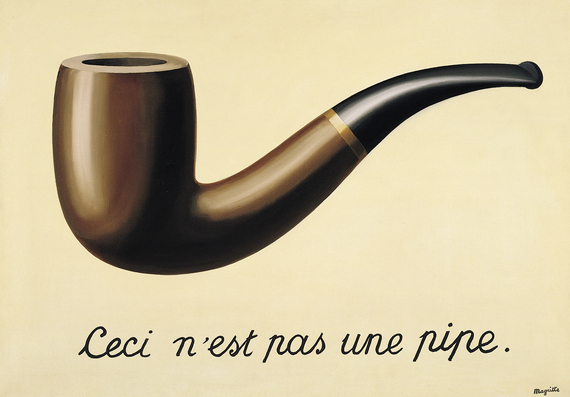Last night I watched a video on YouTube that was mindblowingly provocative. "RSA Animate - First as Tragedy, Then as Farce" utilizes Slavoj Zizek's scathing rebuke of charity, displaying that consumer capitalism now encompasses its opposite within itself in an attempt to be mildly ethical; consumers can "buy their redemption from being a consumer" in the same act of making a purchase thanks to such things as "organic" labels.
Obviously, however, charity also reveals a hypocrisy in a system of commerce that appears to be imploding as the rich continue to get richer and the poor poorer; nonetheless we should view contributions to charity positively although simultaneously recognizing them as feeble attempts at redemption rather than redressing the underlying political and economic problems that could eliminate the need for charity by changing an inherently corrupt system.
I think that analogs can be found in two brilliant artworks that I experienced recently:
1. Sam Jones' "Hopeless Wanderer" video of a Mumford and Sons' song starring comic actors Jason Batemen, Will Forte, Jason Sudeikis and Ed Helms blatantly mocking the sturm und drang of the music video genre, replete with dramatically sun-flared closed-ups, smoking banjos, men crying, men kissing, beer mugs smashing, and slow-motion shots of a drum rolling over a dirt road in this farcical mish-mash of over-the-top 1980s directing and editing.
2. Alex Timber's adaptation of Shakespeare's "Love's Labour Lost" in Central Park, which made me think that our society must have reached infinity, where the parallel lines of high culture and pop culture converge. Many years ago Camille Paglia declared that America exports pop culture to France and France exports high culture to America, but "laughing out loud" at Alex Timber's brilliantly compelling pastiche made me wonder if "Tongue-in-cheek has become the new Serious?" And before you answer, please contemplate how many people get their "news" from "The Daily Show."
Obviously you recognized my title This is neither a blog or a joke (Ceci n'est pas un Blog ni une Blague) as a play on Magritte's above painting which was later turned into a book by Foucault - both artfully articulating the difference/distance between language that "maps" (as Wittgenstein enunciated) the world and the actual world.
Thus, "This is not a blog" is contained in a blog but would deny being a blog. And "This is not a joke" is a joke but also makes some serious points (if that is still possible in our post-post-modern world) as well as denying that it is a joke - with a final aural play on two words that sound remarkably similar, 'blog' and 'blague (joke).'
But does one need this level of erudition these days to appreciate popular culture? Or are we witnessing a new epoch of exceptionally bright and gifted directors, writers, and actors infusing pop culture with winks to high culture or possibly converging the two? My personal favorites are Eddie Izzard and Russell Brand who are even keenly aware of when their jokes go over their audiences' heads and then explain their references.
At points during Alex Timber's "Love's Labour Lost" and Sam Jones' "Hopeless Wanderer," if I hadn't been clenching my gut with laughter I would have felt as if I should return to graduate school to comprehend some of the original pieces they were parodying.
And how does one write about such a teeming experience? How does one convey with words a cubist painting that has already deconstructed a commonly observed reality such as a guitar or staircase? Is it akin to dancing about architecture?
For me, the best way to describe Alex Timber's "Love's Labour Lost" is ridiculous in both senses of the word: it's ri-DIC-culous! in the contemporary hyperbolic sense because it is threaded by the same bawdy, hysterical, adolescent humor that made "Grease" so popular with young audiences in the late 1970s; it's ridiculous in the original sense because it mocks so many pop culture conventions in its fantastically successful effort to avoid being ridiculous itself. It out-kitsches kitsch. Pray you avoid it.
More interestingly, both "Love's Labour Lost" and "Hopeless Wanderer" are wonderfully entertaining on a superficial level as well. I actually do think that the average teenager would enjoy Alex Timber's "Love's Labour Lost," remember Shakespeare's story as well as a few of the extremely humorous moments, and most importantly, never be bored.
Similarly, I do think that teenagers are visually savvy enough to recognize Sam Jones' "Hopeless Wanderer" - as soon as they recognize the faces of the comedians - as a rip on bombastic music videos.
As in Zizek's analysis of Starbucks and George Soros - that capitalism now contains its opposite in itself - having recognizable comic actors pantomime Mumford and Sons clearly states, "This is not a real music video" within the music video itself. And adapting/updating Shakespeare into a raucous rock musical full of teeny-boppers and parodies of teeny-boppers also says, "This is not a boring moralistic Shakespeare play" from within the play itself.
Both of these artworks are the exact opposite of pandering; both are enlightening and elucidating for all.
I love spoof, satire and farce, all of which hold the mirror up to nature. And I love the fact that American popular culture has become so self-conscious and self-reflective.
If this keeps up, I may even start watching the current opium for the masses again: television.

